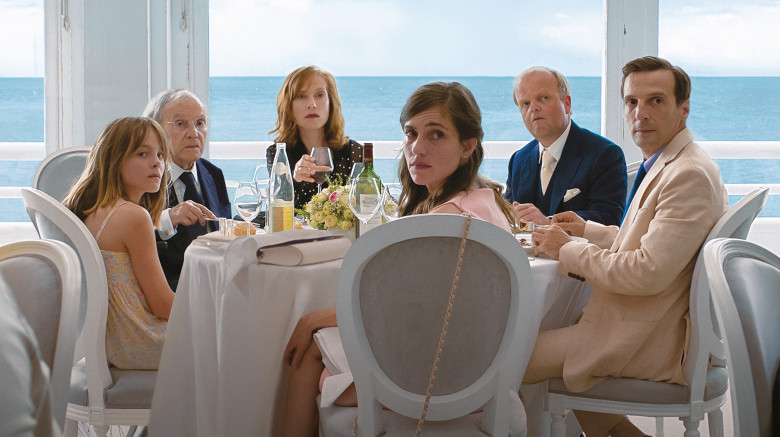
Austrian writer-director Michael Haneke (Funny Games, Amour) revisits familiar intellective terrain in his most recent rigidly composed treatise on haute-bourgeois prerogative, Happy End.
In fact, so recognizable are Haneke’s pet themes of old-line disaffection amidst the intersection separating media estrangement and bubbling-just-below-the-surface violence, that the sadistic streaks and elegant arcs are all too easy to anticipate.
Add the return of his former muse from The Piano Teacher (2001) and Time of the Wolf (2003), Isabelle Huppert, and Happy End tends to play a little like Haneke’s “grimmest hits”––and while not necessarily a dig, it does take some of the sting out of the pointed farce being presented.
Set in Calais, a coastal town in northern France that’s influx of migrants have placed the region at the hub of the European refugee crisis, a periphery detail that may easily be lost on North American audiences, nevertheless this is the scrim wherein the affluent Laurent family flourishes.
Their patriarch is Georges (Jean-Louis Trintignant), slowly going senile, he’s losing his will to live; there’s also his niece Eve (Fantine Harduin), a 13-year-old sociopathic sadist with a knack for poisoning and catfishing on social media, she’s straight out of an updated Benny’s Video (1992); also there’s Anne (Huppert), Eve’s aunt, running Georges’ accident-prone construction firm, soon to wed one Lawrence Bradshaw (Toby Jones) while trying to reel in her astray, alcoholic, and unapproachable son, Pierre (Franz Rogowski).
There are more players in the Laurent clan, but you get the picture that this extended, well-to-do lot fill in some soap opera-like tropes, given the Haneke treatment which involves a full complement of psychological allegories, mean-spirited deflections, and misanthropical messes.
There’s never any doubt during Happy End’s 107 minutes that we’re in the hands of a world-class director, though in one of his more minor movements. All of his previously utilized distancing techniques are being applied once more, such as the coldly compromised, static camera long-shots that enraptured us in Caché (2005) as well as the artfully composed long takes that made The White Ribbon (2009) such a formal affair.
And like those films, Happy End continues Haneke’s partnership with cinematographer Christian Berger, and the two men seem to take pride in crafting endurance tests for emotional and mental anguish. But alas, we’ve seen it all before and in much better films.
Even though Happy End has all the architects, actors, and elements of Haneke’s finest works, it never combines into the perfect storm scenario that all these climes steer us towards. Is it a case of too many ingredients reducing the stew? It may well be. It’s a film that moves noncommittally towards becoming a thriller, a whip-smart satire, a sex farce, a soap, and winds up being barely a shadowy whisper of any of these. Happy End is a film too episodic, oblique, and inchoate to be very interesting, and that’s no way to settle.
Taste of Cinema Rating: 3.5 stars (out of 5)
Author Bio: Shane Scott-Travis is a film critic, screenwriter, comic book author/illustrator and cineaste. Currently residing in Vancouver, Canada, Shane can often be found at the cinema, the dog park, or off in a corner someplace, paraphrasing Groucho Marx. Follow Shane on Twitter @ShaneScottravis.